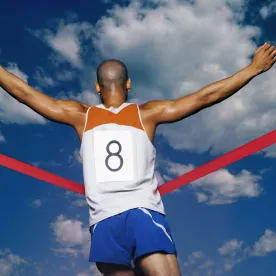In these days of “extreme vetting,” entering the United States as a business visitor (B visa or Visa Waiver status, with an ESTA approval) can have its hazards – especially for athletes who need to enter the United States quickly and have no time to spare.
Earlier this year, three Belgian Olympians of Moroccan descent heading to the 2017 Taekwondo U.S. Open in Las Vegas had their ESTA status denied as they attempted to board a plane.
In February, a Canadian-born student-athlete of Moroccan descent travelling with his team was denied entry at the Vermont border crossing.
Enhanced security screening is not the only issue. The Trump Administration also wants to ensure that individuals are not circumventing immigration processes and inappropriately entering in visitor status.
For a professional athlete to enter successfully as a business visitor:
-
The entry must be for a specific, limited time (up to 90 days for Visa Waiver and up to 180 days for B-1/B-2 entries);
-
The individual must have sufficient funds to cover expenses during the stay;
-
The individual must prove ties abroad and have a residence outside of the U.S. he or she has no intention of abandoning; and
-
Except in limited circumstances, the foreign national should receive no U.S. remuneration (other than reasonable expenses).
Prize money is an exception to the “no U.S. remuneration” rule. According the Foreign Affairs Manual, “professional athletes such as golfers and auto racers, who receive no salary or payment other than prize money for . . . participation in a tournament or sporting event” may enter in business visitor status. The same holds true for athletes or team members who seek to enter to compete with another sports team, provided:
-
The foreign athlete or team have their principal place of business or activity in a foreign country;
-
The income of the foreign-based team and the salary of its players are principally accrued in a foreign country; and
-
The foreign-based sports team is a member of an international sports league or the sporting activities involved have an international dimension. [Link to FAM: here ]
An athlete also can enter as a business visitor to try out for a professional team and individuals who are a “normal and necessary component of the athlete’s entourage,” such as caddies or racing car mechanics, may enter as visitors (and continue to be paid by the athlete), as long as the individual is:
-
Customarily employed by the athlete (not just hired for the particular U.S. tournament or tour); and
-
The athlete is receiving no payment other than possible prize money.
Athletes entering the U.S. for a tournament, but who also have valuable U.S. endorsement deals, should consider applying for a P visa to avoid having the remuneration they receive for the endorsements not fit the “prize money” exception.
To qualify for a P visa, the athlete must provide proof of having an “internationally recognized reputation in the sport.”
USCIS statistics released in response to a FOIA request reveal that in 2016, the California Service Center had an 88% approval rate for P visas and the Vermont Service Center had a 90% approval rate. Both California and Vermont had about a 22% Request for Evidence rate. (Vermont Premium Processing had a slightly lower 17% rate.) In California, the after-RFE-approval rate was 46% for regular processing and 65% for premium processing. In Vermont, the after-RFE-approval rate was 28% for regular processing and 75% for premium processing.
The USCIS announced that, as of May 20, petitions for P status for beneficiaries who will be working or training in the popular training states of Florida, Georgia, or North Carolina must be filed with the California Service Center, instead of Vermont. P major league sports-related petitions, however, will continue be filed with the Vermont Service Center. USCIS announcement.





 />i
/>i
